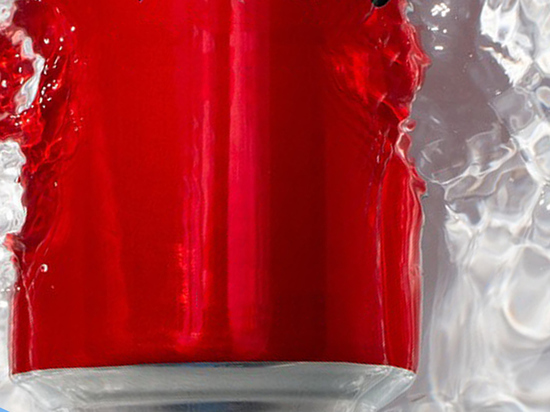Scientists call 0-calorie drinks a myth
[ad_1]

Artificial sweeteners that replace sugar are practically rehabilitated. A new publication in the journal Nutrients provides evidence that non-caloric sugar substitutes are virtually indistinguishable from water in their effects on the body. So far, scientists have argued that drinking soda without sugar is the same as drinking soda with sugar.
This statement was made by a group of Canadian and Australian scientists. An analysis of previous scientific work in this area showed that drinks containing cyclamate, sucralose, acesulfame potassium, stevioside and saccharin, individually and in any combination, are comparable to water in terms of their effect on glucose, insulin and several other parameters, that is, almost contain no threats.
The global market for artificial sweeteners is valued at $7.2 billion and is growing at 5% annually. Sweetened drinks, snacks, low-calorie ready meals, dairy products are very popular among consumers. Over 23,000 products worldwide contain artificial sweeteners. In addition, they are sold in pure form for people to add to their tea or coffee.
Recently, there has been increasing concern that non-caloric sweeteners may increase the risk of developing heart, vascular and endocrine diseases. To find out if this is the case, the researchers conducted a systematic review of studies comparing the effects of non-caloric sweetened beverages and sugar-sweetened beverages in humans.
The analysis included 36 studies with 472 healthy participants. The studies examined various drinks sweetened with acesulfame potassium, aspartame, cyclamate, saccharin, stevia and sucralose compared to water and drinks sweetened with various caloric sugars (glucose, sucrose and fructose).
Studies have shown that beverages sweetened with one or a mixture of non-caloric sweeteners have metabolic and endocrine effects similar to water.
Sugars have become the dominant nutrient of concern in human health and disease research. This concern has led a number of international health agencies and chronic disease associations to call for a reduction in free sugars. Particular attention is paid to the main source of free sugars – sugar-sweetened beverages, the excess consumption of which is associated with weight gain, diabetes and their subsequent complications, including hypertension and coronary heart disease.
In many countries around the world they are calling for “0 calorie” drinks. For example, the US Food and Drug Administration has approved eight nonnutritive sweeteners: aspartame, acesulfame potassium, luohan guo fruit extract, neotame, saccharin, stevia, sucralose, and advantame. Yet despite their approval, research evidence suggests that many of these substances may increase the risk of cardiometabolic disease. Scientists hypothesize that these substances act on intestinal sweet taste receptors or cause glucose intolerance and impair metabolic sensitivity to carbohydrates.
For example, it is known that sugar does not carry the necessary nutrients, it is only a source of energy. Extremely high sugar intake can lead to adverse consequences – increased cholesterol levels, accumulation of fat in the liver, the emergence and development of cardiovascular disease.
Artificial sweeteners have emerged as an alternative to sugar to reproduce the sweet taste and therefore reduce the calorie content. And yet, while scientists do not have a common opinion about them.
For example, a recent study by French scientists who studied the effects of artificial sweeteners on the cardiovascular system among 103,000 French people showed that the total consumption of artificial sweeteners is associated with an increased risk of cardiovascular disease. The absolute incidence rates among those who use sweeteners and those who do not use sweeteners were 346 and 314 per 100,000 person-years. In simple terms, the relative risk increased by 9% over the 9 years of follow-up for myocardial infarction, angina pectoris, stroke, transient ischemic attack, need for stenting, and other cardiovascular events.
“Consumed daily by millions of people and present in thousands of foods and drinks, these dietary supplements should not be considered a healthy and safe alternative to sugar, which is in line with the current position of several health agencies,” write the authors of the paper.
“So far, no one knows how much artificial sweetener can be considered harmful, and how much is acceptable,” says dietitian, PhD Anna Devyatikhvostikova. – I think episodic consumption of artificial sweeteners is unlikely to have a strong impact on the risk of developing chronic diseases. Although, judging in general, there are already quite a few works that talk about an increase in the risk of developing vascular events associated with a large consumption of soft drinks containing artificial sweeteners.
In the meantime, scientists have not decided on their conclusions, it is worth following the recommendations of the WHO and Rospotrebnadzor: calories from sugar added to foods should not exceed 10% of the total daily caloric intake.
[ad_2]
Source link








